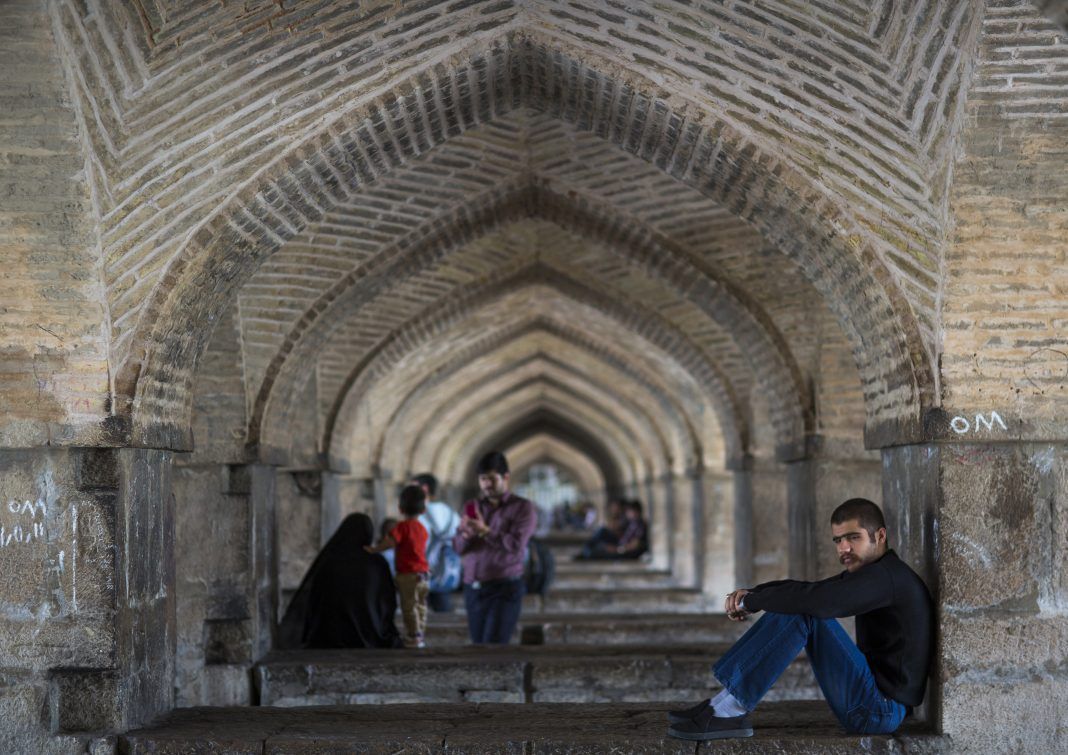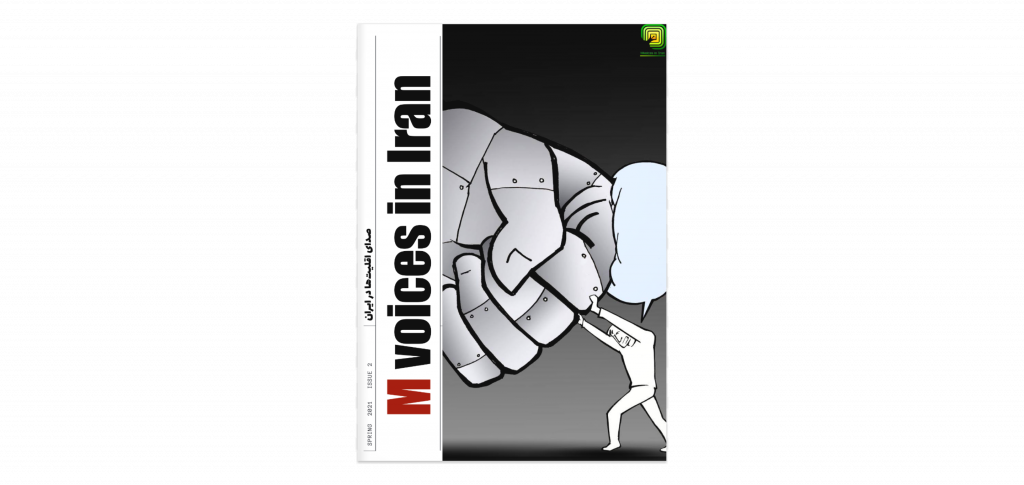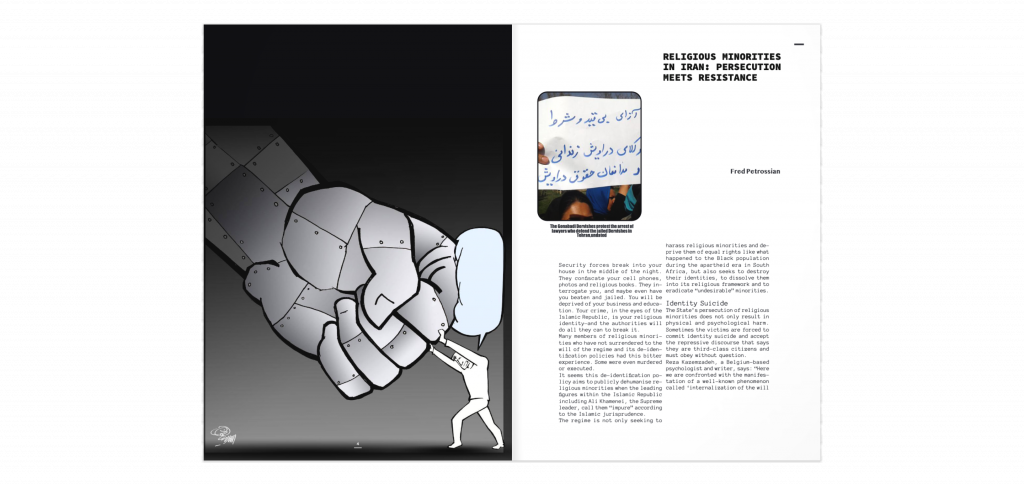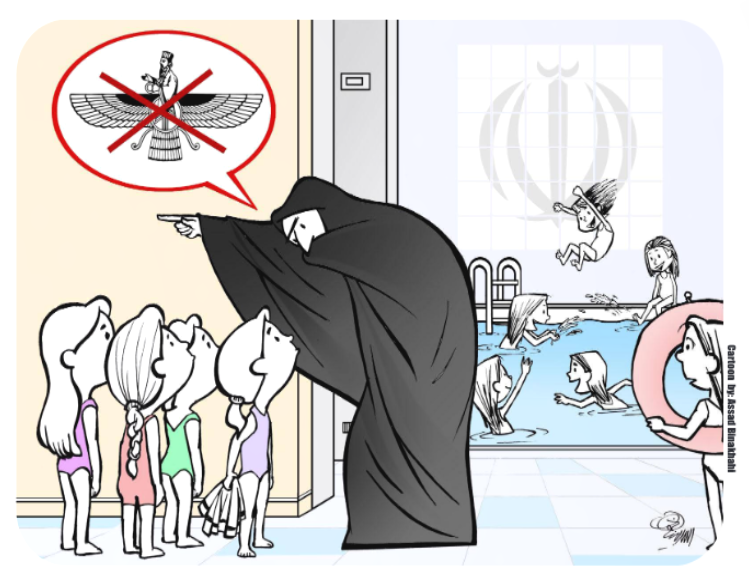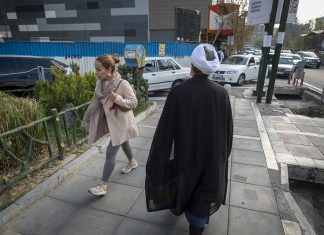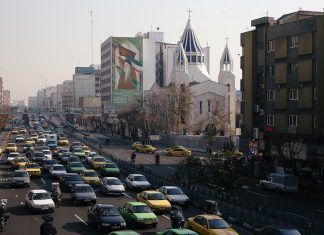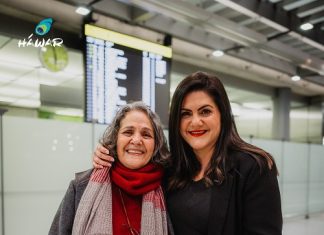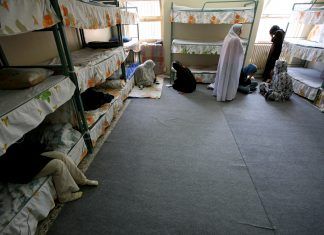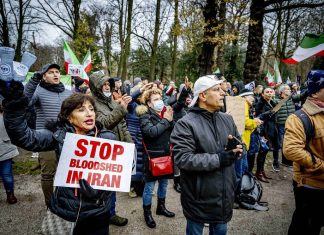A new online magazine, MVoices Iran, is shedding light on religious minorities and the discrimination that they face in the country. The magazine describes itself as the first publication of its kind.
Iran, which has been an Islamic Republic since 1979, allows the practice of faiths other than Islam, but experts say laws and policies enacted in the country create oppressive and often illegal constraints on communities which do not practice Shia Islam.
MVoices Iran — an abbreviation for Minority Voices in Iran (MVoices) — was founded in October by Fred Petrossian, a journalist based in Brussels who co-founded the award-winning March 18 movement, a campaign to protect Iranian bloggers critical of the regime from persecution and torture.
Petrossian, an Armenian Christian born in Tehran, launched the magazine after 9 years working as the online editor in chief for the international broadcaster, Radio Free Europe/Radio Liberty’s Persian service in Prague. He currently works with Article 18, a non-governmental organization based in London which promotes religious freedom in Iran.
Most Iranians living in Iran are Shi’ite Muslims. According to Pew Research figures, they represent 90 to 95 percent of the population. A significant number of religious minorities also live in the country, such as Zoroastrians, agnostics, Sunni Muslims, Sufis, Humanists, Christians, Baha’is and Jews.
Concerns about the treatment of religious minorities in Iran have been consistently raised by the international community.
Amnesty International’s latest annual report on human rights around the world, published on April 7, said: “Freedom of religion and belief was systematically violated in law and practice” in Iran.
“Authorities refused to recognize the right of those born to Muslim parents to convert to other religions or become atheists,” it added, “with individuals seeking to exercise this right risking arbitrary detention, torture and the death penalty for apostasy.”
Kayhan Life spoke to Fred Petrossian about MVoices Iran, his hopes for the magazine and why religious minorities in Iran should join forces.
Why did you decide to launch MVoices Iran?
I wanted to create an online magazine and website to help build a bridge between Iran’s religious communities, civil society, and activists, [allowing them] to know about each other and to discuss and develop ideas. As far as I know it’s the first online magazine solely dedicated to religious minorities in Iran.
I’d like the site to create a sense of togetherness among religious minorities. And I’d like it to help build momentum, so that exhibitions and campaigns can be raised to help people remember the victims — individuals who were murdered or imprisoned for their beliefs, like Baha’is and those from Christian minorities — which I think would have a positive impact in protecting those communities.
I also discovered through conversations with my friends — who are brilliant Iranian human rights activists — that although they had a deep knowledge of Iranian politics, they were not aware of the challenges around identity and religious freedom in Iran.
I’ve tried to address this lack of awareness through one of MVoice’s sections, called “Your Voice,” where ordinary citizens in Iran talk about their experiences of discrimination. On one occasion, the section featured a Zoroastrian who talked about not being able to go to swimming pools in Iran because Zoroastrians were considered to be ‘impure’ at that time, and the story really surprised people who were not aware of these issues.
Why is discrimination against religious minorities on the rise in Iran?
The regime aims to deprive minorities of their identity. The state doesn’t just want to create ghettos, or engage in discrimination — it also wants to push these communities into a corner so they are coerced into denying who they are. As a result, people from these religious groups internalize the fear that they feel from these policies, so I and many others try to break that fear.
While not all minorities are victims of the same discriminatory policies in Iran, developing civil resistance against persecution and developing alternative resources such as online universities for Baha’is — who have been stopped from going to university in Iran — or [establishing] house churches for Christians, or sharing open letters by Dervishes protesting, show that these groups can resist and preserve their identity despite 42 years of repression.
Historically, have religious minorities in Iran engaged with one other?
Iranian minorities, especially Iranian religious minorities, share many things with each other. It’s the same suffering, it’s the same discrimination, and they are all deprived of their human rights.
At the same time, each group and community — and this, I think, is down to government pressure — don’t communicate with each other and remain in their corners.
This means they don’t share their pain with each other, and their experiences with each other. I thought it was necessary to create a platform where individuals could share their stories.
Who has collaborated with you on the project?
MVoices features stories written by established names in Iranian academia, including: Dr. Behnaz Hosseini, a visiting research fellow at the University of Oxford who has written several books on religious minorities in Iran and Iraq, and is also a former United Nations expert on religious minorities in Iraq; and Sepideh Nasseri, a civil rights activist based in Sweden who shared her experience of being an atheist living in Iran.
One of MVoice’s stories about the growing level of resistance against the Iranian government by persecuted religious minorities was republished on the website Religion and International Relations. The site is chaired by Jeffrey Haynes, emeritus professor of politics and director of the center for the study of religion, conflict and cooperation at London Metropolitan University in the United Kingdom.
MVoices also works with well-known cartoonists such as Shahrokh Heidari, an artistic director for several advertising agencies in Paris, and a regular contributor to the IranWire newspaper.
Shahrokh is a member of the French project Cartooning for Peace, which was founded by Plantu (Jean Plantureux), a leading satirical cartoonist whose work is featured regularly in the French newspaper, Le Monde.
Another cartoonist MVoices has worked with is Assad Binakhahi, who was a lecturer on animation in the faculty of fine arts at Tehran University, and has been a cartoonist for various newspapers and cartoon journals.

